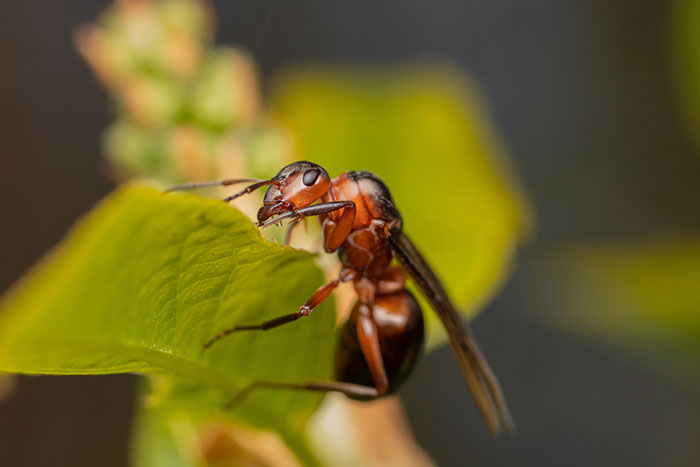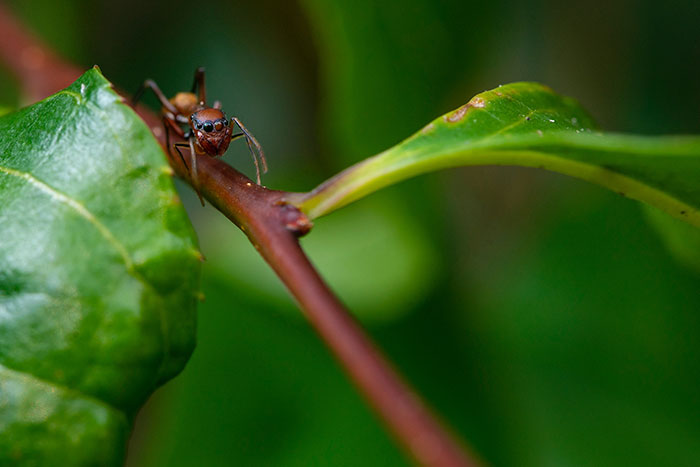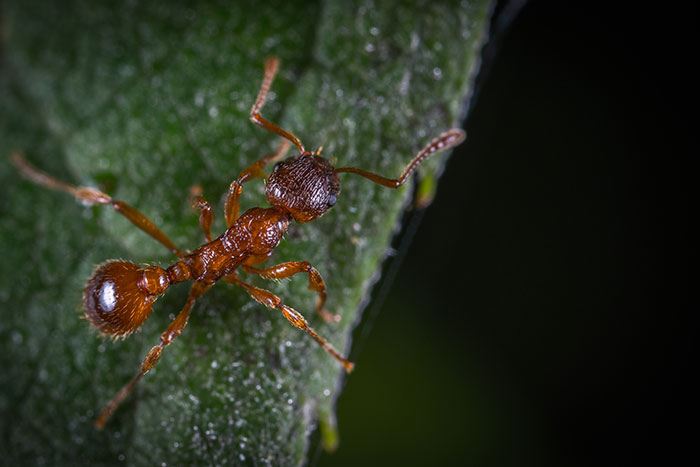Ant
Reliable Ant Exterminator in Surrey, Vancouver, & North Vancouver
When it comes to effectively managing ant infestations in Surrey, Vancouver, and North Vancouver, look no further than IPM Pest Control. Renowned for our comprehensive approach to Integrated Pest Management (IPM), we have earned a 30-year reputation as reliable ant exterminators dedicated to providing top-notch solutions personalized to the unique requirements of our customers.
Ant invasions can disrupt the harmony of homes and businesses, and that’s where our expertise shines. Our experienced team understands the behaviour and biology of different ant species, enabling us to devise targeted strategies for swift and sustainable elimination. We prioritize the safety of your pets, family, and the environment, using environmentally friendly methods that effectively rid your premises of ants while minimizing any potential impact on surrounding ecosystems. Check our videos or call us for more information today.
Ant Prevention Tips
Preventing ant infestations requires a proactive and strategic approach to maintaining a pest-free environment. Here are some valuable ant prevention tips that can help you safeguard your home or business:
- Maintain cleanliness: Clean floors, countertops, and other surfaces to remove food crumbs and spills that may attract ants. Sweep and vacuum your living spaces frequently, paying particular attention to kitchen areas where food is prepared and consumed.
- Store food properly: Keep food stored in airtight glass, metal, or heavy-duty plastic containers. This includes pantry staples like cereals, grains, and sweets. Pet food should also be stored securely.
- Wipe down surfaces: Wipe down surfaces to eliminate food residue after meals. Don’t forget to clean up pet bowls as well.
- Empty trash regularly: Dispose of garbage in sealed containers and empty them regularly to prevent ants from being drawn to leftover food.
- Seal entry points: Inspect your home for potential entry points such as cracks, gaps, and holes. Seal these openings using caulk, weather stripping, or other appropriate materials to block ant access.
- Trim vegetation: Keep plants, shrubs, and trees away from the exterior of your property. Ants can use branches as pathways to access your home.
- Eliminate standing water: Ensure proper drainage around your property to prevent water pooling, as ants are drawn to damp environments.
- Seal trash bags: Double bag your trash, especially if it contains food waste, to reduce odours that attract ants.
- Maintain outdoor areas: Keep outdoor spaces tidy by cleaning up food debris after outdoor activities and maintaining a clear perimeter around your property.
- Professional inspection: Schedule regular inspections with a professional pest control service like IPM Pest Control to identify and address potential ant entry points and vulnerabilities.
Incorporating these ant prevention tips into your routine can reduce the likelihood of ant infestations and create a less appealing environment for these pests. Remember, a proactive approach is critical to maintaining a pest-free home or business.

Where Do Ants Come From?
Ants can originate from various outdoor locations, making their way indoors for food, water, or shelter. These tiny insects are highly adaptable and can find their way into homes and buildings through tiny openings. Often, ants establish their nests near moisture sources like soil, under rocks, or in decaying wood. From these nests, worker ants venture out to forage for food, following scent trails left by their fellow ants. When they discover accessible food sources indoors, they create trails that can lead to infestations if not addressed promptly. Preventative measures such as sealing entry points, maintaining cleanliness, and reducing moisture can help keep these persistent pests at bay and prevent them from establishing a foothold in your living spaces.
Signs of An Ant Infestation
Detecting an ant infestation early can help prevent the problem from escalating. Here are some signs to watch for that may indicate an ant infestation:

- Visible ants: If you consistently see ants, especially in more significant numbers, inside your home or other indoor spaces, it’s a clear sign of an infestation.
- Ant trails: If you notice well-defined paths or trails of ants moving along walls, floors, or countertops, it indicates a regular foraging pattern.
- Piles of debris: Some ant species create piles of debris near their nests, including discarded wings, soil, or other materials.
- Swarming: Swarming winged ants (known as “alates”) indoors, especially during periods of rain or after the winter, may signal a nearby nest.
- Nesting sites: Check for signs of ant nests, which can be located outdoors in soil, under rocks, or in logs, as well as indoors in wall voids, cracks, and crevices.
- Rustling sounds: Some ants, like carpenter ants, may produce rustling sounds inside walls as they excavate wood for nesting.
- Visible damage: Certain ant species, such as carpenter ants, can cause structural damage to wood as they tunnel through it. Look for wood shavings, frass, or weakened structures.

- Pet behaviour: Ants could be present if your pets seem unusually interested in a specific area, such as pawing at a wall or floor.
- Fecal pellets: Small ant droppings, often resembling sawdust or sand, may accumulate near nest sites or along ant trails.
- Distinct odour: Some ants release a strong, musty odour when disturbed, which can be a noticeable sign of an infestation.
- Sudden food infestations: If you find ants swarming around a food source, it’s a sign they’ve located a new food supply and may have established a colony nearby.
- Cracks and crevices: Inspect cracks, crevices, and gaps around windows, doors, and foundations for ant activity, including emerging ants or discarded wings.
- Unexplained plant damage: Ants can protect aphids or scale insects from predators, so ants might be involved if you notice unusual plant damage or the presence of these pests.
If you notice any of these signs, it’s advisable to take action to address the ant infestation promptly. Implementing ant control measures, such as improving sanitation, sealing entry points, and seeking professional pest control assistance, can help effectively manage the problem and prevent it from worsening.

We are Surrey’s Top Choice for Ant Extermination
At IPM Pest Control, we combine advanced techniques with a commitment to ongoing training and the latest developments in pest management technology. This ensures we remain at the forefront of ant control, delivering results beyond extermination.
When you choose IPM Pest Control as your ant exterminator in Surrey, Vancouver, and North Vancouver, you’re opting for a partner that values your well-being and understands the urgency of pest issues. With our dedicated approach and proven 30-year track record, we stand ready to restore the comfort and hygiene of your living or working space, allowing you to confidently go about your daily life without the nuisance of ant infestations.
Request a Quote Now
Our ant exterminator in Surrey, Vancouver, North Vancouver aims to offer a lasting solution that focuses on prevention, giving you the peace of mind you deserve.
